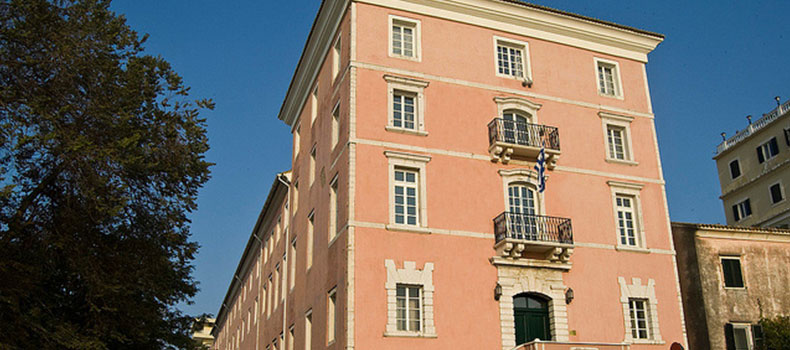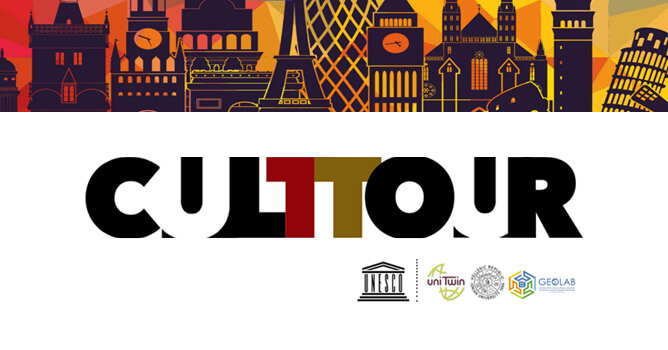Duration: 4 months (16 weeks), 90 hours
Deadline for applying: 31-10-2021
Courses beginning date: 08-11-2021
Courses completion date: 30-3-2022
Awarding Certificate of Educational Specialisation
Programme Director: Stavros Katsios, Professor of International Economic Relations and International economic Crime, Department of Foreign Languages, Translation and Interpreting, Ionian University. Greece. He is coordinator of the Yellow Tourism Project, Chair-holder of the UNESCO Chair on Threats to Cultural Heritage and Cultural Heritage-related Activities and Director of the Laboratory for Geo-cultural Analyses (GeoLab) at the Ionian University, Corfu, Greece.
Stakeholders
- UNESCO Chair in Threats to Cultural Heritage and Cultural Heritage-related Activities, Ionian University.
- Cruise-Lab, Bremerhaven University for Applied Sciences, Germany
- Laboratory for Geocultural Analyses (GeoLab) Ionian University
- BUCSIS, Buckingham University Centre for Security and Intelligence Studies
Tutors
- Professor Alex Papadopoulos, DePaul University, Chicago, USA
- Professor Stavros Katsios, Ionian University, Corfu, Greece
- Associate Professor Elena Avramidou, Beijing University, China
- Associate Professor Sotiris Livas, Ionian University, Corfu, Greece
- Associate Professor Ioannis Karras, Ionian University, Corfu, Greece
- Associate Professor Georgios Papaioannou, Ionian University, Corfu, Greece
- Lecturer (Assistant Professor) Vassilis Kappis, Buckingham University, UK
- Assistant Professor Kalliopi Chainoglou, University of Macedonia, Thessaloniki, Greece
- Dr Ioannis Blatsos, Postdoc Researcher at GeoLab, Corfu, Greece
- Dr Nikolaos Smirnakis, Postdoc Researcher at GeoLab, Corfu, Greece
- Dr Konstantinos Doukakis, Senior researcher at GeoLab, Corfu, Greece
- Nikolaos D. Mamalos, PhD candidate, GeoLab, Ionian University, Corfu, Greece
Who should take the programme?
The programme is addressed to:
- graduates of universities and technical colleges with an interest in the issues of cultural heritage, tourism and the threats and dangers they face. Educators, lawyers, economists and business executives of each related fields have a proven interest in attending the programme.
- everyone who, regardless of professional occupation, wishes to acquire knowledge in the unlimited thematic of cultural heritage and culture through an interdisciplinary approach.
- everyone who wishes to enhance his/her competitive abilities for examinations, participation in undergraduate or postgraduate programs, or for vocational retraining.
Attendance
In: English and Greek
Via: e-learning
How: Every program is broken down into manageable, weekly modules, designed to accelerate your learning process through diverse learning activities:
- Downloadable and online instructional material
- Interacting with your peers and learning facilitators, small group discussions and live sessions
- A wide range of interactive content, including video lectures, infographics, live polls and more
- Real-world case studies
- Apply what you learn each week to quizzes and ongoing project submissions
Takeaways
- Introduction of the participants to the concepts, the international and national regulatory framework and policies for the cultural heritage and its protection;
- Identification, analysis of the multiple threats to tangible and intangible cultural heritage and to related activities such as the various forms of Tourism, the museums etc.
- Knowledge and professional expertise transfer is done through an approach based on cultural and socio- economic parameters. Specifically, the program's interdisciplinary approach to the various forms of threats, artificial or natural, highlights, inter alia, issues related to corruption, crime, governance and human rights.
- Providing knowledge and developing negotiation and diplomatic skills to the participants about the concept of cultural heritage, the risks/threats and opportunities associated with it.
- Training human resources by providing specialized knowledge, so that it complements and/or upgrades the knowledge the has received at other educational levels or professional experience.
Course outline
Module 1: International protection of human rights, cultural rights and rights of cultural heritage
Module 2: International Organizations: Policies and Actions in the field of protection of cultural heritage
Module 3: European Institutions, Funding Tools and Cultural Heritage
Module 4: Intangible Cultural Heritage
Module 5: Cultural Heritage, Tourism and Security - Dealing with modern hybrid threats.
Module 6: Special Topics: Yellow Tourism Corruption, Transnational Organized Crime and Culture
Module 7: Cultural Heritage and New Technologies [Digital Cultural Heritage]
Module 8: Economic Issues of Cultural Heritage Management and Sustainable Development
Module 9: Special conditions in the form of a tourist product: the Cruise
Module 10: Diplomacy of Cultural Heritage, Return of Cultural Property
Module 11: Intercultural Communication
Assessment methods
Written essays, individual or group projects, examination, or a combination of these methods are used. A grade of at least 5 in the 10-grade scale is required. A Certificate of Educational Specialisation is awarded following successful attendance and assessment.
Cost
740 €, paid as:
- 50 € in advance
- in 3 installments (until 30/11/21, until 15/1/22, until 31/3/22)
Discounts:
- Long-term unemployed, PWD, students, group registration (over 5 persons): 670 €*
- Early-bird (until 30/9/21): 670 € (one-off)
* In case you do not submit or confirm the respective supporting documents in time, the discount shall be revoked, and the price difference shall be paid.
Useful links
Contact:
Nikolaos D. Mamalos karoumpos@gmail.com, +30 26610 87251
Professor Stavros Katsios skatsios@ionio.gr




 Booklet of CULTTOUR program
Booklet of CULTTOUR program












